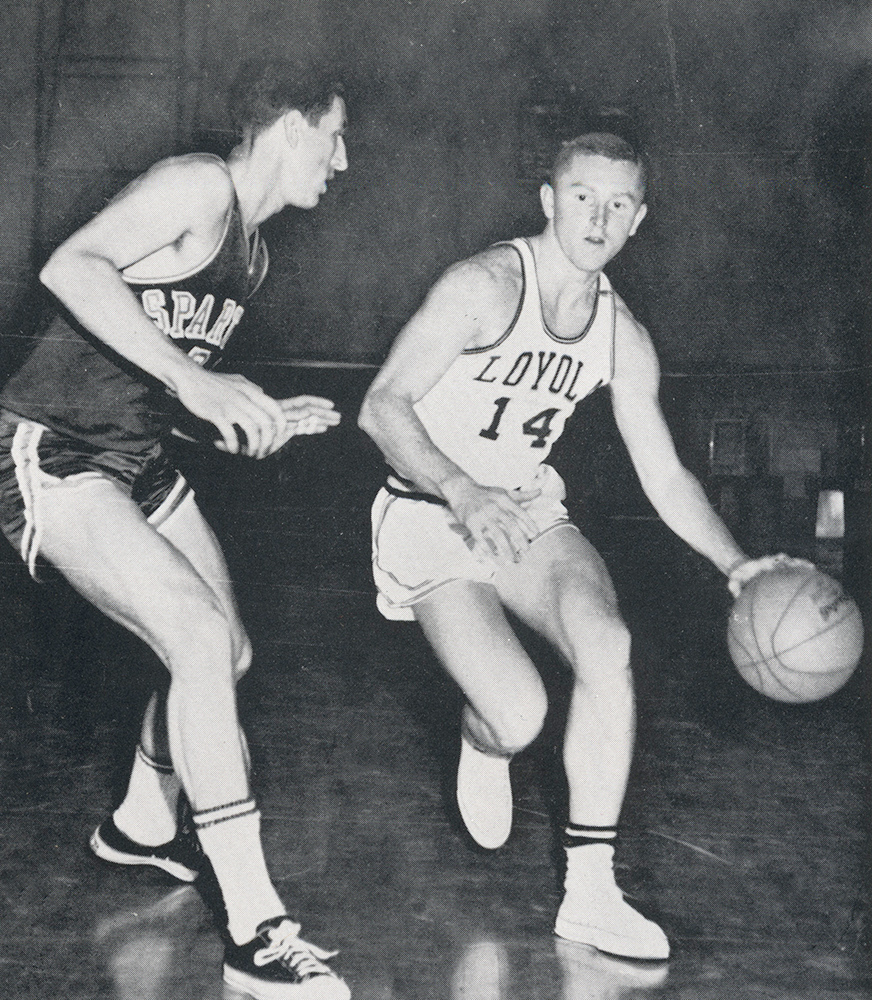
Brian Quinn, former LMU director of athletics (1985–98), was a member of the Loyola University basketball and baseball teams as an undergraduate. In 2002–12, he was director of athletics at California State University, Fullerton. A member of the WCC and LMU Athletics Halls of Fame, Quinn also was named this past spring as a 2018 inductee to the National Association of College Athletics Directors Hall of Fame.
What has changed the most in college athletics during your career and when you suited up for LMU?
Recruitment. You recruit all over the country, not just locally. Also, student athletes are looking at things we never looked at when I played: size of the gym, how many games you play on television, what are your food services like, what kind of residences do you have, what kind of academic services do you offer. When I was a student, we didn’t ask any of those questions. UCLA didn’t have Pauley Pavilion, USC didn’t have the Galen Center, LMU didn’t have Gersten Pavilion. We weren’t going to school because of the gym, meals or travel. Today, you have to be equal to or better than the schools you’re recruiting against or you’re not going to get the kind of quality kids you want to help you be successful.
Has the amount of money involved in college sports, from revenues to expenditures, changed college sports?
Money is certainly an issue. If you’re a five-star recruit, you have to believe you’re going to the NBA. The truth is, though, that very few student-athletes are going to make any money after they graduate. I think they’re chasing the wrong dream. I don’t know that our fans expect us to be that way. I think what they really want is an honorable, quality program. They want to win, certainly. But they don’t want to win the wrong way.
Do you think fans today relate differently to their college teams than when you played?
I don’t think so. I sit in the stands with one of LMU’s best fans who has been coming to games for as long as I can remember. When I was playing, he went to the games. When we were in the NCAA tournament in 1961, he drove all the way to Portland to see us play. Has he changed? No. He wants the same thing: a good program, an honest program, and, sure, he wants to win.
What troubles you the most about college sports today?
Putting the word athlete before student bothers me. The one-and-done phenomenon bothers me. I also think the massive amounts of money that coaches are being paid across the country really troubles me. I don’t know that a basketball coach should make 10, 15, 20 or 30 times more than the president of the university.
In many sports, NCAA tournament brackets are increasingly filled with teams of major public institutions —Florida, Kansas, Wisconsin, Texas, North Carolina, Michigan, for example. Are large public institutions gaining more recruiting power and slowly shutting out private mid-majors?
Those schools you’ve named are in the Power Five major conferences, which have massive television packages that are giving back millions of dollars a year to the athletic programs. You can pay the best coaches and steal the best coaches from our schools. I don’t say there’s anything wrong with that; they can afford that. Also, they can travel, build and maintain facilities, buy equipment. A state school can spend a lot less on soccer scholarships, but LMU has to spend a fortune on scholarships. It’s very difficult for the private schools, with exceptions such as Stanford and Notre Dame, to compete. But a university like LMU can get to the tournaments. LMU had good runs to the Sweet Sixteen two years ago in women’s soccer and volleyball.
How do you define success in an athletic program?
My definition of success in an athletic program is what are the student-athletes doing with their lives 10 years after they graduate. Are they positive, contributing members of society? Are they doing good things? Are they active in their faith? Are they living up to the ideals of the environment where they were in school? That tells me a lot more than how many wins and losses they have. I’ve been on teams that have won championships and two years later were near the bottom of the league. That’s the way it is. We’re all winners if we get a quality education and end up being good citizens.
